 W
WThe Pulitzer Prize for History, administered by Columbia University, is one of the seven American Pulitzer Prizes that are annually awarded for Letters, Drama, and Music. It has been presented since 1917 for a distinguished book about the history of the United States. Thus it is one of the original Pulitzers, for the program was inaugurated in 1917 with seven prizes, four of which were awarded that year. The Pulitzer Prize program has also recognized some historical work with its Biography prize, from 1917, and its General Non-Fiction prize, from 1962.
 W
WDean Gooderham Acheson was an American statesman and lawyer. As United States Secretary of State in the administration of President Harry S. Truman from 1949 to 1953, he played a central role in defining American foreign policy during the Cold War. Acheson helped design the Marshall Plan and was a key player in the development of the Truman Doctrine and creation of the North Atlantic Treaty Organization.
 W
WJames Truslow Adams was an American writer and historian. He was a freelance author who helped to popularize the latest scholarship about American history and his three-volume history of New England is well regarded by scholars. He coined the phrase "American Dream" in his 1931 book The Epic of America.
 W
WCharles McLean Andrews was an American historian, an authority on American colonial history. He wrote 102 major scholarly articles and books, as well as over 360 book reviews, newspaper articles, and short items. He is especially known as a leader of the "Imperial school" of historians who studied, and generally admired the efficiency of the British Empire in the 18th century. Kross argues:His intangible legacy is twofold. First is his insistence that all history be based on facts and that the evidence be found, organized, and weighed. Second is his injunction that colonial America can never be understood without taking into account England.
 W
WLawrence Rush "Rick" Atkinson IV is an American author, most recently of The British Are Coming: The War for America, Lexington to Princeton, 1775–1777, the first volume in the Revolution Trilogy. He has won Pulitzer Prizes in history and journalism.
 W
WStephen Bonsal was an American journalist, war correspondent, author, diplomat, and translator, who won the 1945 Pulitzer Prize for History.
 W
WDaniel Joseph Boorstin was an American historian at the University of Chicago who wrote on many topics in American and world history. He was appointed the twelfth Librarian of the United States Congress in 1975 and served until 1987. He was instrumental in the creation of the Center for the Book at the Library of Congress.
 W
WTaylor Branch is an American author and historian best known for his trilogy of books chronicling the life of Martin Luther King Jr. and much of the history of the American Civil Rights Movement. The third and final volume of the 2,912-page trilogy—collectively called America in the King Years—was released in January 2006, and a selected summary of the trilogy, The King Years: Historic Moments in the Civil Rights Movement, was released in 2013.
 W
WVan Wyck Brooks was an American literary critic, biographer, and historian.
 W
WRobert Vance Bruce was an American historian specializing in the American Civil War, who won the 1988 Pulitzer Prize for History for his book The Launching of Modern American Science, 1846–1876 (1987). After serving in the Army during World War II, Bruce graduated from the University of New Hampshire, where he earned his Bachelor of Science in mechanical engineering. He received his Master of Arts in history and his Doctor of Philosophy from Boston University, where he was later a professor. He also taught at the University of Bridgeport, Lawrence Academy at Groton, and the University of Wisconsin. Bruce was also a lecturer at the Fortenbaugh Lecture at Gettysburg College.
 W
WPaul Herman Buck was an American historian. He won the Pulitzer Prize for History in 1938 and became the first Provost of Harvard University in 1945.
 W
WRoscoe Carlyle Buley was an American historian and educator.
 W
WCharles Bruce Catton was an American historian and journalist, known best for his books concerning the American Civil War. Known as a narrative historian, Catton specialized in popular history, featuring interesting characters and historical vignettes, in addition to the basic facts, dates, and analyses. His books were researched well and included footnotes. He won a Pulitzer Prize during 1954 for A Stillness at Appomattox, his study of the final campaign of the war in Virginia.
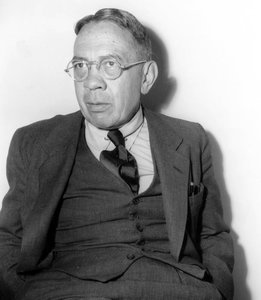 W
WBernard Augustine DeVoto (1897–1955), American historian, essayist, columnist, teacher, editor, and reviewer, was a lifelong champion of American Public lands and the conservation of public resources as well as an outspoken defender of civil liberties. He was the author of a series of Pulitzer-Prize-winning popular histories of the American West and for many years wrote The Easy Chair, an influential column in Harper's Magazine. DeVoto also wrote several well-regarded novels and during the 1950s served as a speech-writer for Adlai Stevenson. His friend and biographer, Wallace Stegner described Devoto as "flawed, brilliant, provocative, outrageous, ... often wrong, often spectacularly right, always stimulating, sometimes infuriating, and never, never dull."
 W
WJoseph John Ellis is an American historian whose work focuses on the lives and times of the founders of the United States of America. American Sphinx: The Character of Thomas Jefferson won a National Book Award and Founding Brothers: The Revolutionary Generation won the 2001 Pulitzer Prize for History. Both these books were bestsellers.
 W
WDon Edward Fehrenbacher was an American historian. He wrote on politics, slavery, and Abraham Lincoln. He won the 1979 Pulitzer Prize for History for The Dred Scott Case: Its Significance in American Law and Politics, his book about the Dred Scott Decision. In 1977 David M. Potter's The Impending Crisis, 1848-1861, which he edited and completed, won the Pulitzer Prize. In 1997 he won the Lincoln Prize.
 W
WElizabeth Anne Fenn is an American historian. Her book Encounters at the Heart of the World: A History of the Mandan People, won the 2015 Pulitzer Prize for History. She serves as the Walter S. and Lucienne Driskill chair in Western American History at University of Colorado-Boulder.
 W
WEric Foner is an American historian. He writes extensively on American political history, the history of freedom, the early history of the Republican Party, African-American biography, Reconstruction, and historiography, and has been a member of the faculty at the Columbia University Department of History since 1982. He is the author of several popular textbooks. According to the Open Syllabus Project, Foner is the most frequently cited author on college syllabi for history courses.
 W
WDoris Helen Kearns Goodwin is an American biographer, historian, former sports journalist and political commentator.
 W
WAnnette Gordon-Reed is an American historian and law professor. She is currently the Carl M. Loeb University Professor at Harvard University and a professor of history in the university's Faculty of Arts & Sciences. She is formerly the Charles Warren Professor of American Legal History at Harvard University and the Carol K. Pforzheimer Professor at the Radcliffe Institute for Advanced Study. Gordon-Reed is noted for changing scholarship on Thomas Jefferson regarding his relationship with Sally Hemings and her children.
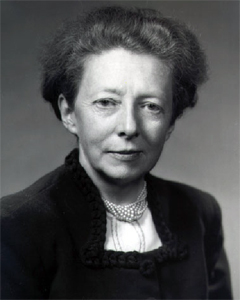 W
WConstance McLaughlin Winsor Green was an American historian. She who won the 1963 Pulitzer Prize for History for Washington, Village and Capital, 1800–1878 (1962).
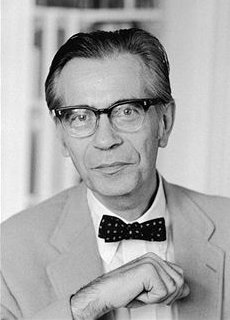 W
WRichard Hofstadter was an American historian and public intellectual of the mid-20th century.
 W
WRhys Llywelyn Isaac was a South African-born Australian historian of American history who also worked in the United States.
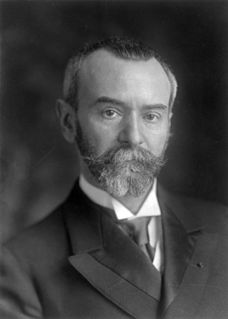 W
WJean Adrien Antoine Jules Jusserand was a French author and diplomat. He was the French Ambassador to the United States during World War I.
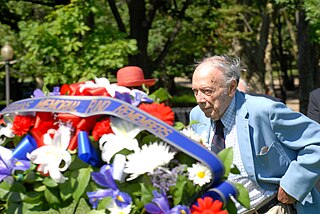 W
WStanley Abram Karnow was an American journalist and historian. He is best known for his writings on the Vietnam War.
 W
WGeorge Frost Kennan was an American diplomat and historian. He was best known as an advocate of a policy of containment of Soviet expansion during the Cold War. He lectured widely and wrote scholarly histories of the relations between the USSR and the United States. He was also one of the group of foreign policy elders known as "The Wise Men".
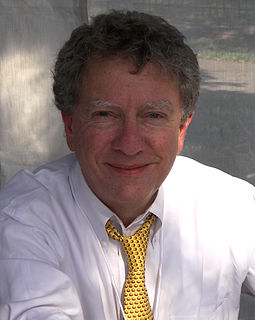 W
WHank Klibanoff is an American journalist, now a professor at Emory University. He and Gene Roberts won the 2007 Pulitzer Prize for History for the book The Race Beat: The Press, the Civil Rights Struggle, and the Awakening of a Nation.
 W
WEdward John Larson is an American historian and legal scholar. He is university professor of history and holds the Hugh & Hazel Darling Chair in Law at Pepperdine University. He was formerly Herman E. Talmadge Chair of Law and Richard B. Russell Professor of American History at the University of Georgia. He continues to serve as a senior fellow of the University of Georgia's Institute of Higher Education, and is currently a professor at Pepperdine School of Law, where he teaches several classes including Property for the 1Ls.
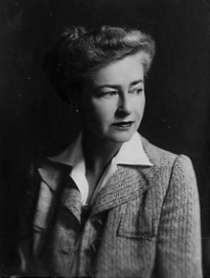 W
WMargaret Kernochan Leech, also known as Margaret Pulitzer, was an American historian and fiction writer. She won the Pulitzer Prize for History both in 1942 and in 1960.
 W
WFredrik Logevall is a Swedish-American historian and educator at Harvard University, where he is the Laurence D. Belfer Professor of International Affairs at the John F. Kennedy School of Government and professor of history in the Harvard Faculty of Arts and Sciences. He is a specialist in U.S. foreign policy and the Vietnam Wars. He was previously the Stephen and Madeline Anbinder Professor of History at Cornell University, where he also served as vice provost and as director of the Mario Einaudi Center for International Studies. He won the 2013 Pulitzer Prize for History for his book Embers of War: The Fall of an Empire and the Making of America’s Vietnam.
 W
WWilliam Manning Marable was an American professor of public affairs, history and African-American Studies at Columbia University. Marable founded and directed the Institute for Research in African-American Studies. He authored several texts and was active in progressive political causes. At the time of his death, he had completed a biography of human rights activist Malcolm X titled Malcolm X: A Life of Reinvention (2011), for which Marable won the 2012 Pulitzer Prize for History.
 W
WAndrew Cunningham McLaughlin was an American historian known as an authority on U.S. Constitutional history.
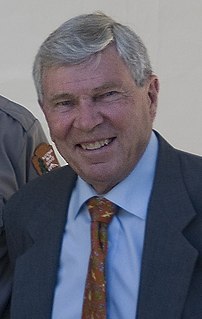 W
WJames M. "Jim" McPherson is an American Civil War historian, and is the George Henry Davis '86 Professor Emeritus of United States History at Princeton University. He received the 1989 Pulitzer Prize for Battle Cry of Freedom: The Civil War Era. McPherson was the president of the American Historical Association in 2003.
 W
WDavid M. Oshinsky is an American historian. He is the director of the Division of Medical Humanities at NYU School of Medicine and a professor in the Department of History at New York University.
 W
WVernon Louis Parrington was an American literary historian and scholar. His three-volume history of American letters, Main Currents in American Thought, won the Pulitzer Prize for History in 1928 and was one of the most influential books for American historians of its time.
 W
WGeneral of the Armies John Joseph "Black Jack" Pershing was a senior United States Army officer. He served most famously as the commander of the American Expeditionary Forces (AEF) on the Western Front in World War I, 1917–18. In addition to leading the A.E.F. to victory in World War I, Pershing notably served as a mentor to many in the generation of generals who led the United States Army during World War II, including George Marshall, Dwight D. Eisenhower, Omar Bradley, Lesley J. McNair, George S. Patton and Douglas MacArthur.
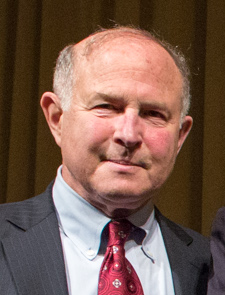 W
WJack Norman Rakove is an American historian, author and professor at Stanford University. He is a Pulitzer Prize winner.
 W
WJames Ford Rhodes, was an American industrialist and historian born in Cleveland, Ohio. After earning a fortune in the iron, coal, and steel industries by 1885, he retired from business. He devoted his life to historical research and publishing a seven-volume history of the United States beginning in 1850; his work was published from 1893–1906. He published an eighth volume in 1920. His work, History of the Civil War, 1861–1865 (1918), won the second-ever Pulitzer Prize for History that year.
 W
WCarl August Sandburg was a Swedish-American poet, biographer, journalist, and editor. He won three Pulitzer Prizes: two for his poetry and one for his biography of Abraham Lincoln. During his lifetime, Sandburg was widely regarded as "a major figure in contemporary literature", especially for volumes of his collected verse, including Chicago Poems (1916), Cornhuskers (1918), and Smoke and Steel (1920). He enjoyed "unrivaled appeal as a poet in his day, perhaps because the breadth of his experiences connected him with so many strands of American life", and at his death in 1967, President Lyndon B. Johnson observed that "Carl Sandburg was more than the voice of America, more than the poet of its strength and genius. He was America."
 W
WArthur Meier Schlesinger Jr. was an American historian, social critic, and public intellectual. The son of the influential historian Arthur M. Schlesinger Sr. and a specialist in American history, much of Schlesinger's work explored the history of 20th-century American liberalism. In particular, his work focused on leaders such as Harry S. Truman, Franklin D. Roosevelt, John F. Kennedy, and Robert F. Kennedy. In the 1952 and 1956 presidential campaigns, he was a primary speechwriter and adviser to the Democratic presidential nominee, Adlai Stevenson II. Schlesinger served as special assistant and "court historian" to President Kennedy from 1961 to 1963. He wrote a detailed account of the Kennedy administration, from the 1960 presidential campaign to the president's state funeral, titled A Thousand Days: John F. Kennedy in the White House, which won the 1966 Pulitzer Prize for Biography or Autobiography.
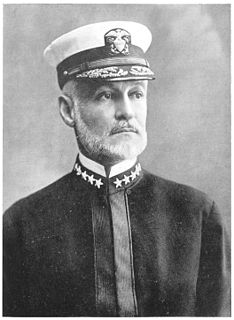 W
WWilliam Sowden Sims was an admiral in the United States Navy who fought during the late 19th and early 20th centuries to modernize the navy. During World War I he commanded all United States naval forces operating in Europe. He also served twice as president of the Naval War College.
 W
WT. J. Stiles is an American biographer who lives in Berkeley, California. His book The First Tycoon: The Epic Life of Cornelius Vanderbilt won a National Book Award and the 2010 Pulitzer Prize for Biography or Autobiography. His book Custer's Trials: A Life on the Frontier of a New America received the 2016 Pulitzer Prize for History.
 W
WAlan Shaw Taylor is an American historian specializing in early United States history. He is the author of a number of books about the colonial history of the United States, the American Revolution and the early American Republic. Since 1995, he has won two Pulitzer Prizes and the Bancroft Prize, and was a finalist for the National Book Award for non-fiction. In 2020 he was elected to the American Philosophical Society.
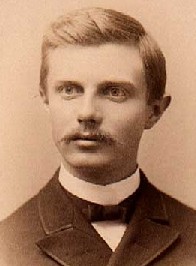 W
WFrederick Jackson Turner was an American historian during the early 20th century, based at the University of Wisconsin until 1910, and then at Harvard. He was known primarily for his "Frontier Thesis". He trained many PhDs who became well-known historians. He promoted interdisciplinary and quantitative methods, often with an emphasis on the Midwest. His best known publication is his essay "The Significance of the Frontier in American History", the ideas of which formed the Frontier Thesis. He argued that the moving western frontier exerted a strong influence on American democracy and the American character from the colonial era until 1890. He is also known for his theories of geographical sectionalism. During recent years historians and academics have argued frequently over Turner's work; all agree that the Frontier Thesis has had an enormous effect on historical scholarship.
 W
WLaurel Thatcher Ulrich is a Pulitzer Prize-winning American historian specializing in early America and the history of women, and a professor at Harvard University. Her approach to history has been described as a tribute to "the silent work of ordinary people"—an approach that, in her words, aims to "show the interconnection between public events and private experience." Ulrich has also been a MacArthur Genius Grant recipient. Her most famous book, “A Midwife’s Tale,” was later the basis for a PBS documentary film.
 W
WMike Wallace is an American historian. He specializes in the history of New York City, and in the history and practice of "public history". In 1998 he co-authored Gotham: A History of New York City to 1898, which in 1999 won the Pulitzer Prize in History. In 2017, he published a successor volume, Greater Gotham: A History of New York City from 1898 to 1919. Wallace is a Distinguished Professor of History at John Jay College of Criminal Justice, and at the Graduate Center, CUNY.
 W
WCharles Warren was an American lawyer and legal scholar who won a Pulitzer Prize for his book The Supreme Court in United States History (1922).
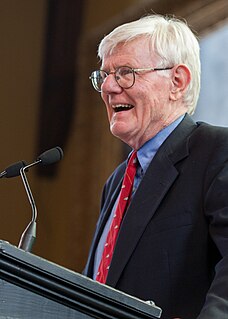 W
WGordon Stewart Wood is an American historian and university professor at Brown University. He is a recipient of the 1993 Pulitzer Prize for History for The Radicalism of the American Revolution (1992). His book The Creation of the American Republic, 1776–1787 (1969) won a 1970 Bancroft Prize. In 2010, he was awarded the National Humanities Medal.
 W
WComer Vann Woodward was a Pulitzer-prize winning American historian focusing primarily on the American South and race relations. He was long a supporter of the approach of Charles A. Beard, stressing the influence of unseen economic motivations in politics. Stylistically, he was a master of irony and counterpoint. Woodward was on the left end of the history profession in the 1930s. By the 1950s he was a leading liberal and supporter of civil rights. His demonstration that racial segregation was a late-19th-century invention rather than some sort of eternal standard made his The Strange Career of Jim Crow into "the historical Bible of the civil rights movement", said Martin Luther King Jr. After attacks on him by the New Left in the late 1960s, he moved to the right politically.